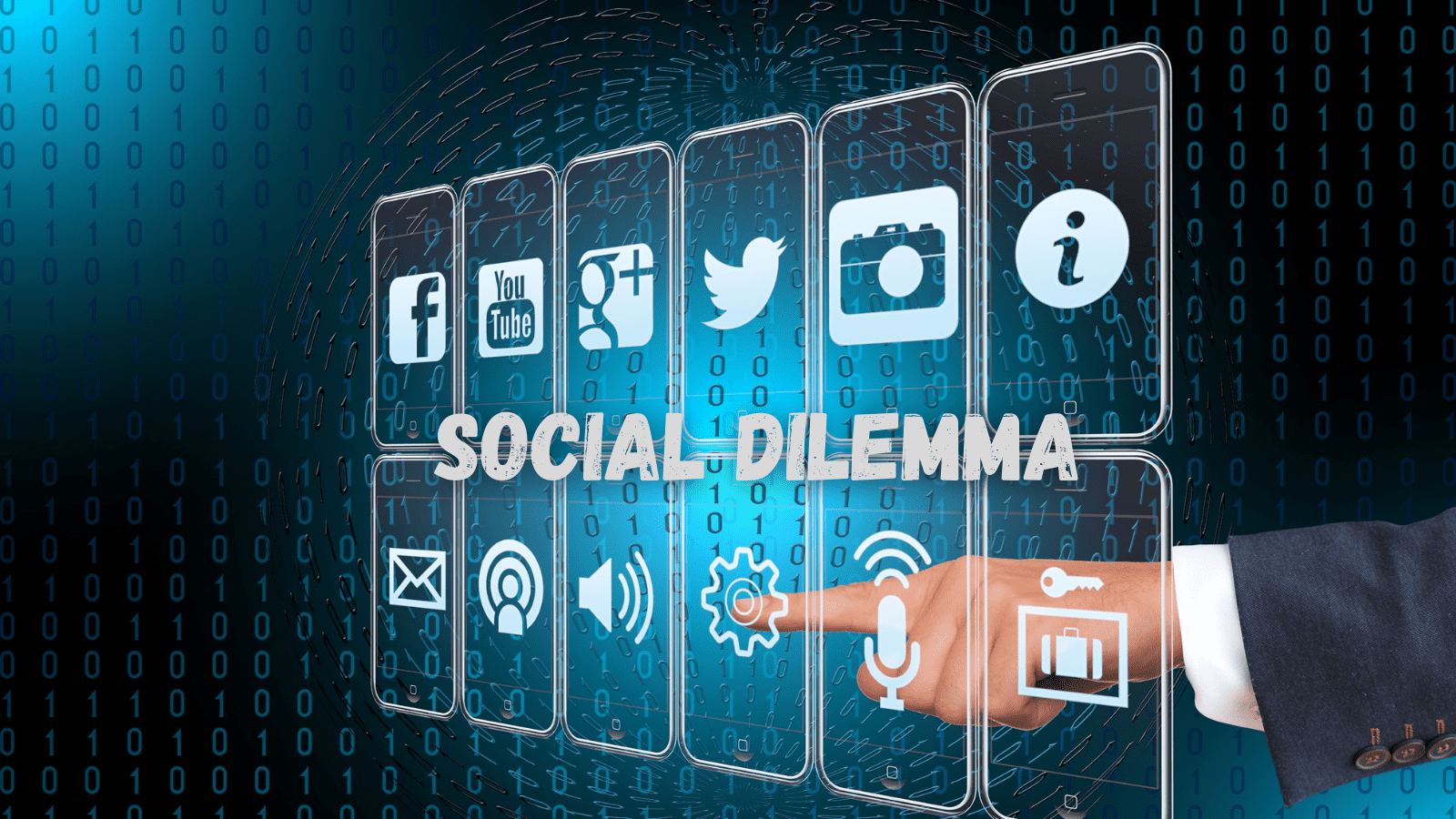Remember Keanu Reeves-starrer ‘The Matrix’, which showed a world that was placed before your eyes to blind you from the truth. After watching The Social Dilemma, the same world comes back to haunt.
Social media was started with the purpose that people stay connected, and friendships last longer, but as enough of anything is bad, the connection is turning into addiction and snooping at dangerous levels putting privacy at the mercy of social digital platforms.
Directed by Jeff Orlowski, the 93-minute-long film ‘The Social Dilemma’ on Netflix focuses on the issues of technology addiction, social engineering and surveillance capitalism. But how should a person come out of a film filled with a snowfall of news and information? In other words, what does it take to properly understand and assimilate the message of the film?
You’ll have to see it yourself. But the Social Dilemma itself will take this responsibility and show you the full dilemma, and now that the people of Silicon Valley, who created the Frankenst AI-n, have learned about ‘The Matrix’, what happens next? A dilemma between the Blue Pill and the Red Pill comes to the fore in the hit 1999 film. Taking the Blue Pill will end the story and you’ll wake up the next day in your bed with dozens of notifications and trusting you can do whatever you want.
But if you take the Red Pill, you can measure the depth of a rabbit’s bill in the magical world. Apart from the color of the pill, this pill will be very difficult to swallow. That too because of the information whose blast film is serving you.
Let’s begin the journey of internet
The influential and deceptive trend of internet social media is not new to us. The Social Dilemma has to be seen to explain this thing a little more clearly. Therefore, first of all we have to identify the track on which the train runs on social media. To show this, this docudrama first comes out of the groove of social media and shows the Internet in a big frame.
Social media is of course a part of this larger frame, but a smaller part. More than a dozen people who are behind the creation of social media tell how some social media platforms for the purpose they were created have now changed their meaning. For most of us, the internet is limited to Google, email and social media. Most of this content is user-generated.
We live in the world of algorithms. Computer programs, apps, social media all run on algorithms. An algorithm is a sequence of instructions or actions to be followed in a problem-solving task.
In her book ‘Weapons of Mass Destruction’, Kathy O’Neill describes how the decisions that affect our daily lives are not made by humans, but by mathematical models. Objectivity should come from all this in theory. Everyone is seen by one rule and there is no bias. However, the reverse is happening.
Digital discrimination
The models that are being used today are not transparent, they are not being regulated, even when they are wrong. The most disturbing thing is that it is being discriminated against. If a poor child cannot take a loan because the lending model thinks he is a threat, he is turned away from the education that could have lifted him out of poverty. This disputes the claim, which states that the data is objective and does not discriminate on the basis of racist and gender.
However, AI trained on large datasets has shown, in the case of facial recognition technology, that all these discriminations lead to false and discriminatory face recognition software and are being used by police and legal agencies.
Social media (You are the product)
When Facebook started in 2006, it did not have sophisticated ways to make money from its platform. Today it is the most valuable company in the world that it earns hundreds of crores by selling its advertisements to third-party advertisers.
The documentary explains that ‘when something is free online, you are not a customer, you are a product.’ Overall, advertisers are Facebook’s clients who are paying Mark Zuckerberg millions for the data of millions of people on Facebook and Instagram.
This is where algorithms come into play. Facebook trends artificial intelligence for the huge amount of data available on its users. So that he can find out which people would like to buy the advertiser’s product. Similarly, they keep preparing themselves in such a way that they can bring more and more users online and can engage more and more.
Suited features like full scrolling, push notifications are attracting users. Apart from this, personalized suggestions not only recognize our actions but also have an impact. It is easily making its users a victim of advertisers.
Surveillance capitalism
This is the era of surveillance capitalism. The biggest problem in this is this motivation, which makes these tech companies like Facebook, Google, Amazon develop such algorithms design, so that our behavior is affected. The term ‘surveillance capitalism’ was coined by Harvard University professor Shoshana Zuboff in his book ‘The Age of Surveillance Capitalism’.
This word describes a large amount of surveillance on our online activity. Even when we do not know and especially this data of ours is commoditized, so that further commercial benefits can be taken from it.
The Social Dilemma
Most of us watch Young Invention on the Internet. However, this was not seen till an age when our life, society and friendship were untouched by the Internet. But then suddenly we were told that like climate change, this is a new global disaster upon us. In this film, manipulation of social media has been described as a threat to existence. It is quite spectacular, it keeps the eyes open.
What is ‘Social Dilemma’ in Social Dilemma?
It’s not about whether we should delete Facebook or not. Just deleting Facebook is not going to affect surveillance capitalism, the job of the algorithm is to pass on misinformation, speeches and advertisements to us that we never wanted, or didn’t like. But the essential dilemma is whether we should accept that the information ecosystem of the Internet is broken, while we continue to swim through its bustling waters.
It is important to understand that big companies are formulating problems in a way that they can solve (using as much artificial intelligence as possible).
Although big tech companies depend on profits, not much is done to save the way things are going here. As in ‘The Matrix’, Morpheus asks Neo what is the truth? The question that can be asked from social media is what is the truth? And after all, how can you define the unbiased truth?





